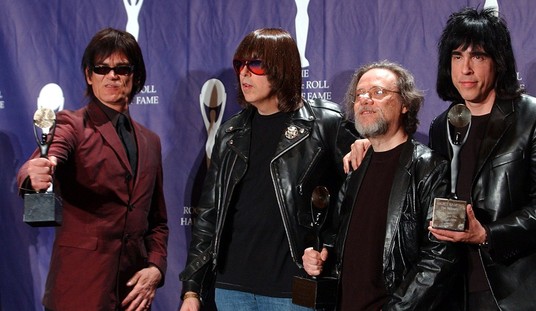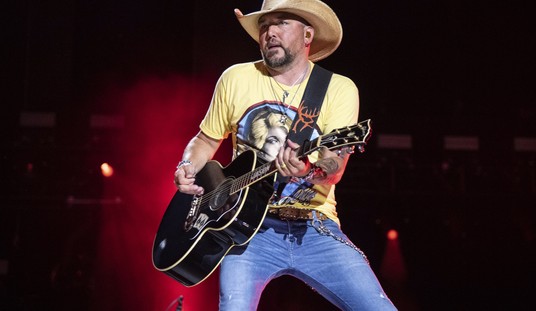Worst idea ever. Best television ever. If Comey’s testimony was the Super Bowl of congressional hearings, Trump’s testimony would be the Super Bowl played on the moon with a live bomb in place of the ball.
Actually, he’s talking here about testifying under oath for Bob Mueller, not in front of the Senate. It’s a good thing no one on either side of the Trump divide takes what the president says literally anymore or else somewhere Marc Kasowitz would be wetting himself.
Save the tape — Trump denies he told Comey to let Flynn investigation go or asked for loyalty
Willing to testify under oath?
Trump: “100%” pic.twitter.com/oDeIrAy694
— Bradd Jaffy (@BraddJaffy) June 9, 2017
Note that he’s also asked about possible recordings of him and Comey and says he’ll be telling the public about that in a very short period of time. Spoiler: He will not be telling the public about that in a very short period of time.
Speaking of false statements, Bre Payton of the Federalist makes a nice catch today by noting that the FBI employment agreement appears to broadly prohibit sharing information acquired in the course of one’s duties with people outside the Bureau. Comey may not have broken the law by leaking his memo to his friend Daniel Richman, but did he violate a pledge he made to the FBI? Click to enlarge:
Paragraphs 2, 3, and 4 are a broad prohibition (“all information,” “all materials containing FBI information”) against disclosing things you’ve learned in the course of your official duties, which was obviously how Comey came to interact with Trump. But there are questions. One: What’s the penalty for violating the FBI employment agreement? Even if Comey’s guilty, probably all it means is that the FBI won’t re-hire him in the future. Two: If Comey is a whistleblower for purposes of federal law, that would trump (pun intended) his obligations under the employment agreement, no? WaPo spoke to a lawyer who specializes in whistleblower protection regarding the complaint Trump’s lawyer plans to file against Comey:
“Here is my position on that: Frivolous grandstanding,” he said. “First of all, I don’t believe the inspector general would have jurisdiction over Comey any more, because he’s no longer a federal employee.” The inspector general’s job is to investigate wrongdoing by employees of the Justice Department, of which Comey is no longer, thanks to Trump.
“But, second,” he continued, “initiating an investigation because you don’t like somebody’s testimony could be considered obstruction. And in the whistleblower context, it’s both evidence of retaliation and, under some laws, could be an adverse retaliatory act itself.”…
“The constitutional right to go to the press with information on matters of public concern, as long as you’re not doing it in a way that will bring out classified information,” Kohn said, “the reason why that is protected constitutionally is that the courts — including the U.S. Supreme Court — have ruled that the public has a constitutional right to hear this information.” In other words, it’s constitutionally protected speech.
Three: As I asked yesterday, was Richman authorized to receive FBI information from Comey? Remember, his Columbia Law School bio lists him as a Comey “advisor.” They may have a formal relationship known to the Bureau in which Richman is entitled to see certain types of documents, especially unclassified ones prepared by Comey himself, as part of his advisory role. Four: If you read page two of the employment agreement, it lists a variety of “Prohibited Disclosures.” There’s nothing among them that describes the sort of conversation that Trump had with Comey about Flynn and loyalty. The closest thing is “information that relates to any sensitive operational details or the substantive merits of any ongoing or open investigation or case,” but asking Comey to go easy on Flynn doesn’t really speak to the “merits” of the case, which are based on evidence. Comey could argue that so long as he hasn’t violated any of the “Prohibited Disclosures,” he didn’t really violate the employment agreement even if he happened to share “information” acquired in the course of duty with Richman.
Exit question via Josh Barro: Trump’s obviously not serious about testifying under oath, but … what if Comey forced him to? Specifically, what if Comey sued Trump for libel or slander when he accused Comey of lying under oath? If the suit was allowed to proceed, there would be discovery and depositions. That would be like the Super Bowl played on Jupiter with nuclear weapons.









Join the conversation as a VIP Member